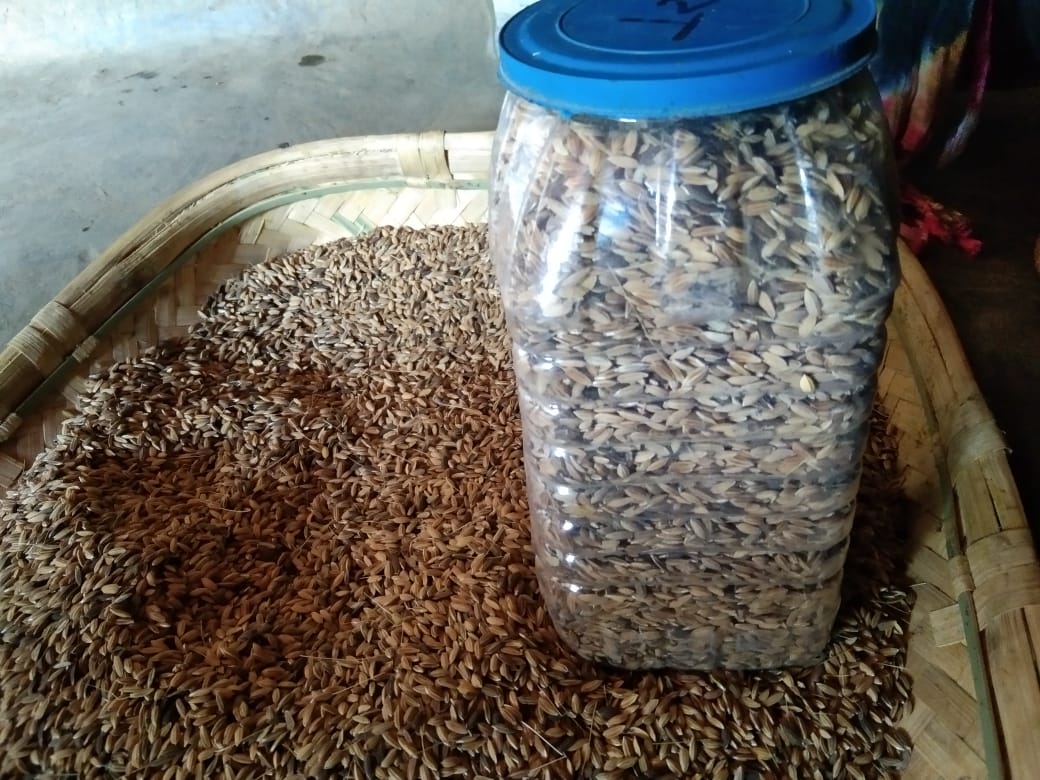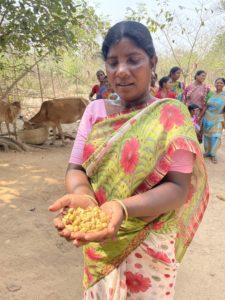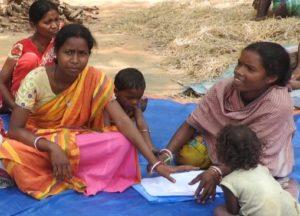One of the most crucial challenges of the “Food Security- Safe Food” have been availability of healthy soil, water and indigenous seeds and organic manure . The Organic farming by the Tribal community with indigenous seeds are found to be the most appropriate answer for food security. But because of corporate marketing of the hybrid seeds the indigenous seeds are disappearing., These indigenous seeds and native breeds have a direct impact on Soil health as they do not deplete the soil of its nutrients. The Tribe, PVTGs are innately well accustomed to native farming. Some of them have valuable indigenous seeds. suitable to soil and local climate change, they have an inherent adapting power to climatic stress and can sustain drought conditions. Such seeds require very little effort to cultivate and grow in a natural environment and are naturally resistant to diseases and pests.
Seed Bank by Baiga tribal community of Ghoghra and Bhurbhspani of Kabirdham Chhattisgarh as part of the project of IBRAD on Conservation Based Sustainable Tribal Livelihoods.
IBRAD’s effort to conserve the agro-biodiversity started establishing community seed banks and identifying seed keepers from different tribal communities, PVTGs in particular in Chhattisgarh, Odisha, West Bengal and Jharkhand.
Seed producers as land race in different agro-ecological zones have to be identified. These community seed banks are a step towards the identification and conservation of important traditional seed varieties.
IBRAD has planned to help the community in orienting the agricultural community towards conserving and cultivating the important, highly nutritious traditional crops and varieties.
Community seed banks have been identified in seven locations with PVTGs by IBRAD to conserve the traditional agro-biodiversity. These seed banks are being managed by the Tribal community itself.






